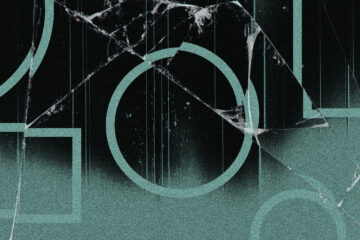The last decade taught us that things can always get even shittier, and the twenties showed us exactly how that works—against us, that is. While the global political situation is swirling into the abyss in perfect synchronicity with the climate and the number of COVID-19 cases is again climbing exponentially, at least our records are still spinning as steadily as usual. That’s reassuring for sure, and the music even more—after all, people still have had a lot of time to think before they got to work. They returned with an impressive load of innovative ideas, artistic tricks and a good portion of much needed comfort.
Fromith 700 Bliss to Batu, DJ Python, Rosa Anschütz as well as TSVI in dialogue with Loraine James, our top 50 records of this first messed-up half of 2022 are chock-full of musical approaches that could put an end to the business techno era in the now permanently reopened clubs. And artists like Anadol, Fhunyue Gao & Sven Kacirek, Park Jiha and Širom show how music as a whole could sound different once again, even (or precisely because) it draws on seemingly tried and tested formulas. Those have also been updated in the field of rap: OG Keemo proved himself to be Germany’s answer to Kendrick Lamar, if not the other way round. However we’d like to frame them, we can’t—both are unique and incomparable in the best, i.e. true sense of the word.
Is everything going in circles?
What else? Weird eclecticism that served as an antidote to the even weirder uniformity of the news business and Spotify playlists of this world. Debit, Eiko Ishibashi, Huerco S, Marina Herlop and so on have been looking forward in times when everyone else would have preferred the clocks to run backwards. Even the wake-up calls from the previous century remind us not to play it safe: Iannis Xenakis, Japanese Telecom, Pauline Oliveros and Yasuaki Shimizu urge us to keep going, because standstill is just a euphemism for defeat. Someone has to prove Kae Tempest’s claim that everything goes round in circles wrong with whatever it takes—if necessary on an Alabaster DePlume beat or with the cosmic-spiritual vocabulary of Perel.
So once again, these are not just 50 vinyl records, but 50 thought-provoking statements that come in all colours and shapes. In their own idiosyncratic ways, they emphasise something that’s been too easy to forget in recent times: another world is always possible.

DJ Haram and Moor Mother with a serious announcement. »Nothing To Declare« is entirely 2022, and listeners virtually choke on the zeitgeist. The crumbs, or rather hard chunks, which are then regurgitated on 700 Bliss consist of rap and supranational club music. Here, everything is thrown on a heap or even over it that has not professed to total progressiveness by the count of three. The vibe is a mixture of ballroom and street fight, the brazen-faced bulldozer of the half year. At least one song should be expected at Mugler's next show.
Pippo Kuhzart To the review
Arseholes would write about Alabaster DePlume that his music is so unassailable that he should actually mind-produce the next three Bonobo albums (LOL, sorry, did it again!). But hey, try making pretty perfect weirdopop, pretty perfect jazz and pretty perfect beat sketches without appearing strung out in any way. »GOLD« is perhaps the definitive Alabaster DePlume album and still a touch too weird and free-spirited to end up in the next Audi spot.
Florian Aigner
But don't despair! For ageing snobs, there's hardly a more gratifying album than Anadol's new LP, because the reference points here are timeless: classic Turkish breaks, foggy krautrock, British-dubby post-punk, spiritual jazz. So far, so safe. What makes »Felicita« completely unrivalled though is an ability to not stick to any genre for longer than a fleeting moment. An absolutely wild record that can nevertheless rest on its laurels.
Florian Aigner To the review
Die Musik, das Cover, die Kuratoren: Die »Air Texture VIII« weist wie kaum eine andere Compilation in vergangenen Halbjahr in Richtung Zukunft. Satte 18 Tracks spannen eine mächtige Bandbreite von Meiteis organischem Downtempo bis hin zu DINAS Techno-Roller »Skin Shed«. Verantwortlich sind mit den New Yorkern Anthony Naples und DJ Python zwei der derzeit progressivsten Köpfe in der elektronischen Musik. Naples’ cleaner Tech-House wie Pythons Vorliebe für außerordentlich geschmackssichere Reggaeton-Einflüsse mit Hang zum Sentimalen treffen im kuratorischen Sweetspot aufeinander.
Maximilian Fritz
Azu Tiwaline always has a guest list spot for any of our half or end of year lists and Al Wootton ... Well, him too. That the two have released their first collaboration on Livity Sound completely seals the deal. It is obvious that this basically unsurprising meeting of the two dub bass greats has a few surprises up its sleeve. Starting with a nerve-wracking etude in suspense-building, the two enter completely new territories together on Alandazu with detours via Burnt Friedman-esque outbursts in terms of dub-flavoured grooves, abstracto-drum'n'bass and joyful dark ambient (!?). Kristoffer Cornils
Kristoffer Cornils To the review
Batu, too, has long been unassailable as a Timedance curator and highly selective producer, and the step to album format in the case of »Opal« is a correspondingly well-considered one. With just over half an hour of playing time and 11 tracks, Opal is formally not an album for the hall, rather Batu's harsh sound design flows into a lucid sequencing in which the drum and song-like contributions set the accents, but do not determine the narrative. Best Objekt album since the last Objekt album.
Florian Aigner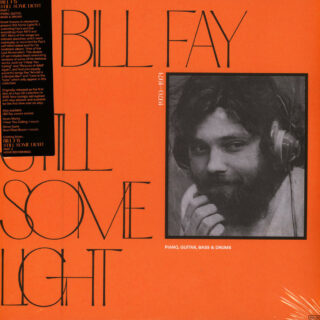
On his self-titled debut, he had the orchestral interludes, he had the songwriting and he had the pathos powers of the Dylans and Cohens, but Bill Fay still remained relatively unknown. In 1972, on his second album, the horns and flutes were gone. On »Time Of The Last Persecution«, Jesus saw himself close but far away from the light, Fay saved on half the instruments and in exchange simply blazed with atmosphere. The demos collected on »Still Some Light Part 1« also date from this time. Guitars, drums, piano, this haunting, faint voice, mediocre sound quality, bad prospects – and everything absolutely brilliant.
Pippo Kuhzart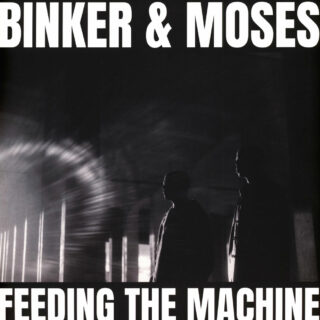
The duo of saxophonist Binker Golding and drummer Moses Boyd takes up its own position in the London jazz that has been thriving luxuriantly for a few years now. Their reduced sound with maximum use of space continues the cosmic free jazz excursions of the late John Coltrane with occasional help from electronic production for the present. In their case, this includes more harmonies and stylistic openness to rock. This is also the case on »Feeding The Machine«.
Tim Caspar Boehme
In every photo of him, the two-metre tall giant of a man looks like he's just been in a fight with a bunch of hooligans in the pub. But Blackhaine designs choreographies for Kanye West and dances in videos for JPEGMAFIA like a rubber doll after five eighths of Chardonnay! What's more, the man from Manchester also belts out beats himself that would make Mark E. Smith rise from his grave in complete awe – to spit in the face of the Sleaford Mods and finally tell Johnny Rotten that he looks like a kindergarten punk next to Blackhaine Blokes. If you want to know what it's really like »Up North«, then check out »And Salford Falls Apart«!
Christoph Benkeser
Together with Stereolab, Broadcast were the style-defining band of the indietronica genre from the mid-nineties onwards. A good ten years after the untimely death of singer Trish Keenan, this reissue of the »Maida Vale Sessions«, recorded in the studios of the BBC, is a late but highly deserved memorial to their colourful, inclusive and good-humoured sound. With the best songs from their early works, the band proves that their detail-rich studio recordings also work wonderfully in a live setting – and also that it was not only the world of music that was much more optimistic 20 years ago.
Martin Silbermann To the review
Oh, and come on: yes, Burial makes much better music, because it bubbles deep below the surface, but standing up and celebrating yet another new Burial as an emotional feat (and bashing Bonobo at the same time) doesn't feel right either. So at this point, just the usual PSA: the new forty minutes are obviously not as good as the first two albums, but nevertheless do something to you as always. »Antidawn« is Burial's ambient record, drum programming can at best be guessed at, and yes, it grabs my attention.
Florian Aigner
The Scandinavians have a feeling for snow. In this case, it's the Swedes from Uppsala. On »Järnätter« they make atmospheric, melodic ambient music with synthesisers. Brian Eno would probably have called the record »Music for Mushrooms, Lichens & Mosses«. Civilistjävel! make light music with heavy equipment here. Anyone who has tried to tie their shoelaces wearing thick woollen mittens will have an inkling of the finesse behind this collection of tracks. It is also the first release on Perko's newly founded label FELT.
Sebastian Hinz To the review
Dalia Neis and Enir Da started out as Fith, but now go by the name of Dali Muru & the Polyphonic Swarm for their album on STROOM〰. Not much has changed though: this is still peak SDA weirdo pop in minor, with Dalia Nei's vocals in their detached coolness ghosting through reduced, Tolouse Low Trax-inspired beats and herbaceous chewiness, in the best avant-wave tradition. The formula may be familiar by now, but this is still a top album.
Florian Aigner To the review
The new Debit album »The Long Count« is cautiously self-confident, not a shade too much distracts from the essence here, a completely abstracted arrangement of partly self-built traditional wind instruments belonging to the Mayan culture, an impenetrable multitonal trip through sounds and above all moods that sound at the same time like 3000 years before and after Christ.
Florian Aigner To the review
Digital hall of mirrors. Things are superficially spartan and almost sluggish on the latest »Club Sentimientos Vol. 2« EP by New York producer Brian Piñeyro alias DJ Python. Yet with plenty of semi-concealed dynamics and carefully planed sounds, the fluid artificiality and polished superficiality of which paradoxically ensure well-rested calm and depth. The ten-minute »Angel« in particular, with its slowed-down deep house, lends itself to immersion. The same goes for his slo-mo reggaeton.
Tim Caspar Boehme
On »Ghost Poems«, Jacob Long pushes layer upon top of layer, pressing cautious yet full-bodied kicks into finely textured surfaces, sampling everyday objects, alienating their sounds and thereby producing a beauty that makes you sit up and take notice early on in the year. Earthen Sea executes the Kranky formula quite perfectly, remains persistently in quiet realms and rolls over in a decidedly gentle manner with ponderous dub rolls and billowing chords that inevitably force contemplation.
Maximilian Fritz To the review
Another much-listened-to record of the last few weeks: Eiko Ishibashi's »For McCoy«, whose frame of reference comes across as maximally random (Law & Order, huh?), but with the exception of the concluding and still rather cheesy third piece, carves two sprawling ambient jazz sculptures that have no reason to hide in any way or form from the great reissue grails on Black Sweat or Soave.
Florian Aigner To the review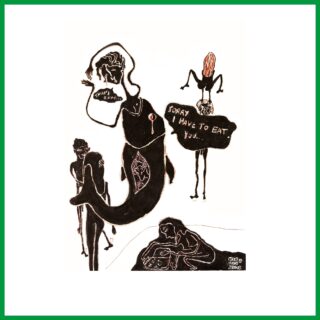
There is music that sounds special, and there is music that sounds like nothing before. Hoya falls into the second category, of course, because what could a theremin player with a background in theatre and a drummer trained in transcultural abstraction work do that could be squeezed into any fixed frame of reference? Yup, nothing really. Fhunyue Gao and Sven Kacirek sometimes venture towards minimal music, feverish (free) jazz, humorous noise and dull dub, but first and foremost open up their very own musical space. You’re much invited to join them there, just don't forget to leave all your previous knowledge at the cloakroom beforehand. Kristoffer Cornils
Kristoffer Cornils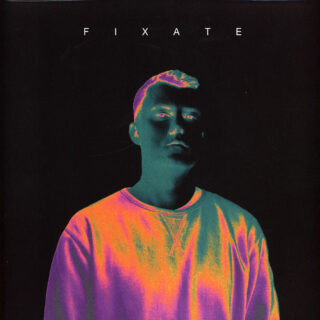
Drum'n'bass was never gone, of course, and thus is not necessarily celebrating a comeback. For some time now, a bunch of artists besides Djrum and dBridge have been trying to give the familiar sound a new look. Rarely has this sounded more gruelling than on Fixate's self-titled debut album on the genre institution Exit. Rap interludes, wild polyrhythms, rough-edged tech-step borrowings - it's all there. And we’re only talking about the first quarter of this album, which then goes on to take completely different paths. Drum'n'bass was never gone, but it has been reinvented in one fell swoop. Thanks for that. Kristoffer Cornils
Kristoffer Cornils
I think »Plonk« is the most descriptive album title since Bleep Techno was coined. Most of the many, many Huerco S side-projects roared like a lion, but »Plonk« plonks down directly in the first half and creates a weightless version of Drill. After that, it gets a bit more spherical and predictable, but with this dubby ambient stuff, Huerco S is still nobody's fool. If someone were to remark that at a minimum the closing piece could have been on the Bonobo album, I would ultimately be exposed as a hypocrite.
Florian Aigner
Hydroplane was a band from Australia. In the '90s, they negotiated the airwaves between dream pop and random experimental stuff that the BBC's Radiophonic Workshop spooled out of the transistors during the baby boomer generation. »Hydroplane«, the 1997 debut, ended up on John Peel, who briefly heaved the thing into the charts. After that, the record gathered dust in the stores – until, thanks to the reissue on Efficient Space, it made its way into the NTS rotation for the first time. An all-time classic!
Christoph Benkeser To the review
Iannis Xenakis would have turned 100 this year, and of course this has to be celebrated somehow, even if many events surrounding the composer's work are surrounded by the stink of musealisation. With the comprehensive box set Electroacoustic Works, however, the Berlin label Karlrecords proves how wonderfully unwieldy his work remains. Sure, especially the early work including the granular synthesis original story of Concrète PH may belong to the canon by now. The late work, however, still hurts the auditory canal and the brain, and pieces like S.709 make the Merzbow catalogue sound like lullabies in comparison. Someone has to create that first, but probably only Xenakis could. Kristoffer Cornils
Kristoffer Cornils
Here we go: The future of techno lies in Africa. We already know that since Hakuna Kulala Records, Nyege Nyege Tapes and the Arabstazy compilations. But »Frigya« (Shouka) is special! Over eight tracks, percussionist Imed Alibi and producer Khalil Epi explore the Tunisian rhythm and sound world and transfer the traditions into a colorful, bass thumping firework of polyrhythms and North African melodies, which should disrupt every club worldwide and submerge it in complete euphoria.
Jens Pacholsky
Isik Işık Kural has recorded 13 very fragile vignettes for »In February«. The glassy dream-pop-ambient-sleep chamber instrumentals fit perfectly into the discography of RVNG Intl., Kate NV, Visible Cloaks and this makes them good landmarks. Above this Işık Kural's breathy voice, which sounds a bit like Devendra Banhart has gone through ego-death and suffered a fainting spell after transcendence. A real firefly album, music box music for grown-ups.
Pippo Kuhzart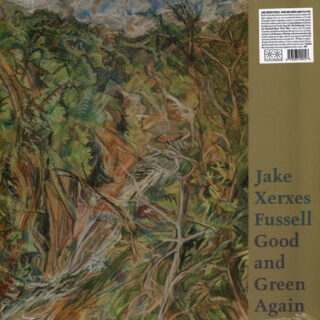
The perfect album in our LOL age, where there's nothing really to laugh about any more: sincerely sad and introverted, Jake Xerxes Fussell played himself into exactly the place where the chest hovers over the beer glass. Emo music from the rural US, or even country-folk, for wandering off into the distance with a tight but well flushed throat. On »Good And Green Again«, Jake Xerxes Fussell dares to express real, unclarified emotions and makes them impressively palpable, only with voice and guitar. »We all marchin' around very well« is probably the most prescient line of 2022 thus far, achieved, of course, solely through the way Fussell delivers it here.
Pippo Kuhzart
Another release by Gerald Donald appeared at the beginning of the year as part of the Clone Aqualung Series: »Virtual Geisha«, which he released in 2001 under the alias Japanese Telecom. And while it clearly has neither the mythical depth of Drexciya nor the technical finesse of Dopplereffekt, it is simply fantastically groovy electro. Sometimes garnished with the impartiality of Japanese synthesiser music of the early 1980s. Music that simply puts a smile on your face. And that's exactly what it wants to do.
Sebastian Hinz To the review
There’s hopefully already someone writing a book or two about the story of Jeanne Lee, but in the meanwhile this reissue of her solo debut, out of print since the 1970s (yup, the Discogs median will absolutely make your skin crawl), could mark the starting point of a broader exploration of the work of the lyricist, singer, choreographer and composer, who has worked with Anthony Braxton as well as with John Cage or Pauline Oliveros. Sounds like a lot, doesn’t it? And so does Conspiracy. There’s traces of spiritual jazz as well as an air of a poetry slam in a smoky New York dive bar, of avant-garde music and pure bliss. It is, in short, the best record you've never heard. Kristoffer Cornils
Kristoffer Cornils
A release that at first glance was not to be expected from International Anthem. The Chicago label has not been entirely uninvolved in dusting off jazz in recent years. On »Recordings from the Åland Islands« jazz has almost disappeared, only to be glimpsed as echoes of a distant past, as piano chords on »Stureby House Piano«, as Coltrane's trumpet on »On The Other Sea«. As if jazz were wafting like a breeze across oceans to the Finnish Åland Islands, where Jeremiah Chiu and Marta Sofia Honer stand with their equipment and capture it. Now it's no longer the same, transformed, having nothing left of its origin except its auratic magic.
Sebastian Hinz
Bureau B’s exploration of the latter day GDR’s tape scene is probably far from complete and yet has already brought a wealth of wonderful, wondrous music back to light. Jörg Thomasius made his name from the mid-1980s onwards with a series of tapes, mostly in collaboration with other artists. However, Acht Gesänge Der Schwarzen Hunde (Eight Songs of the Black Dogs) brings together solo productions that were made between 1980 and 1990 and seem to quote the familiar at the same time as they idiosyncratically distance themselves from it: Thomasius unceremoniously invented dub, wave, noise, industrial, musique concrète, New Age music and other styles on his very own terms. Kristoffer Cornils
Kristoffer Cornils To the review
After coming out as a non-binary person, Kae Tempest returns with a fifth album three years after the critics' favourite »The Book of Traps and Lessons«. Produced in collaboration with Dan Carey and Rick Rubin again, the album is now much more musical and life-affirming. Subtle productions with elements of electronica, hip-hop and indie merge with Kae Tempest's spoken word poetry to create a captivating masterpiece. The album title »The Line Is A Curve« stands for the eternal, recurring search in life and so the record ends with the same melody as it began.
Benjamin Mächler To the review
That would be a nice thing, is all you can think. Not only when you read the title, »A Time For Healing«, but also when you hear the music, or even better: see the quartet play live. Kahil El' Zabar is almost 70, but the way he sits there stage front and makes music with his voice and instrument, you can project everything into it that otherwise seems so lost: true creativity – as the antithesis of lifestyle creativity, independence – as the antithesis of homogenised individuality –, and desire and hope and connectedness. As the antithesis to the rest. Great music, supra-temporal music that has found its existence beyond things. I'm pretty sure the monads vibed to this jazz.
Pippo Kuhzart To the review
Kendrick Lamar continues to rap at Pulitzer level with variable flows and complex storytelling. The mirror-image concept of the double album works, because after the darkness of »DAMN.« he not only reveals his traumas here, but also works through them in a positive way, now seemingly capable of self-love. Although it's not all bull's-eyes, »Mr. Morale & The Big Steppers« impresses with some of the best beats of his career and surprising special guests like Beth Gibbons. Despite the crown of thorns on the cover, Lamar seems to have shed his messiah complex.
Martin Silbermann
After so much pretentious shit, now the full dadcore cosiness. The new Kurt Vile album is called »(watch my moves)«, contains as always the most unpretentious song writing and Kurt Vile – as already observed by P4K – in his current Lou Reed-like brashness simply seems like the Dalai-Lama version of Bruce Springsteen. I don't know how you get to be so completely yourself, but when I grow up, I wanna be like Kurt Vile.
Florian Aigner
The album with the 3D snail queen on the cover does not deceive. On »Pripyat«, Marina Herlop makes artificial art-pop on the basis of a classical piano education. The result sounds like a mixture of Jenny Hval, Kate Bush and SOPHIE, the next Pitchfork Editor-in-Chief practically sprouts from the ground on the first beat of the album. And the tension is simply very, very well done, as well, arising from the juxtaposition of arca-esque glitchy club music and picturesque dramaturgy in the more classical elements (voice and piano).
Pippo Kuhzart
For some years now, everyone who hasn't had their reverb uninstalled early enough has been trying their hand at the overcooked ambient soup – from the full-grown technohead to the common rock dude and the celebrated soul project. Usually this has ended in bland mediocrity or over-salted kitsch. Merrin Karras is one of the few who still achieves the beautiful: creating lush endless synth pad worlds that don’t taste like yesterday's soaked buns. Even if he – as on »Silent Planet« (A Strangely Isolated Place) – dives into it briefly just to chase away again in the very next breath.
Jens Pacholsky To the review
An actual real new album by Dutch grandmaster Michel Banabila, who rose to fresh fame in the wake of the rediscovery of Fourth World music sometime in the mid-2010s. »Echo Transformations« is for everyone as well who still love their John Hassell, Andrew Pekler and Steve Reich. Marimbas and distant birds let listeners know right away where they are. But that's not why this album is here. It's because MIchel Banabila succeeds in translating these much-used ethno tropes into driving grooves, giving his sound an urgency that has nothing to do with the interchangeability of some of the exotic ambient releases of the last ten years.
Pippo Kuhzart
A track like Falling 4 U may invite comparisons to Erika de Casier or even PinkPantheress, but Nalan's debut album takes a completely different turn than their D'n'B'n'R'n'B sound usually does. On I'm Good (The Crying Tape), the singer and MC, who is also known as slimgirl fat and a member of the Gaddafi Girls, uses a variety of different beats as a basis to find the right lid for every pot and turn the whole thing into a self-contained thing thanks to her vocal performance, which ranges from soft crooning to syrupy sleaze and freestyle house anthem throwbacks. If only someone had given Drake and Beyoncé this record on the borderline between hip-hop beats and club-adjacent grooves, we would have been spared a lot. Kristoffer Cornils
Kristoffer Cornils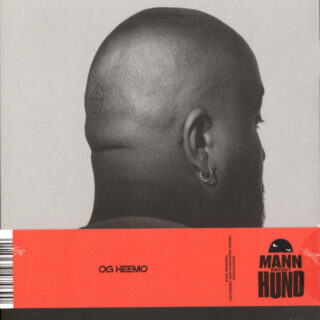
Already after a few weeks in the new year the mass has already been read for German rap in 2022. The fact that OG Keemo would make the narratively most unrivalled German rap album in history with »Mann Beißt Hund« could already be predicted after the pre-release of the first tracks, but the matter-of-factness with which Keemo cements at least three perspectives together into a block prism, in which there are neither reliable narrators nor socio-pedagogical well-actually-s, is almost unique international. Of course, the rejected Kendrick comparison has to come somewhere at this point, but – warning, cliché – the cinematic attention to detail which Keemo uses to measure every square inch of his neighbourhood on the opener alone is really only found on albums of the magnitude of »Illmatic« or »The Infamous«. And that's just the first three minutes. Gulp.
Florian Aigner
Wow, take me to you, Congolese rumba. This sound deserves its own religion and Franco (TPOK Jazz etc.) is its prophet. One of his disciples was a certain Jean-Christian Mboumba Mackaya aka Mack-Joss, the bandleader of Orchestre Massako, Gabon's national orchestra in the '70s. Analog Africa has compiled four sprawling and uplifting songs by this orchestra on »Orchestre Massako«. For this reviewer, the best Africa release of the half-year.
Pippo Kuhzart To the review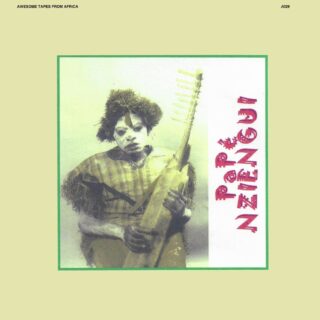
While the global north was still busy jerking off to paternalistic (Fourth) World Music approaches, people like Papé Nziengui from Gabon were already far ahead. On Kadi Yombo, the harpist brought together traditional Tsogho music with synths and screaming electric guitar solos. What was far out on every conceivable level in 1989 and was at times considered iconoclastic by his contemporaries, in retrospect allows comparisons to the Madchester sound just as much as it seems to be the godfather of the music produced much later in Mali by Luka Productions and others. Visionary music that makes the New Age dawn on the dancefloor. Kristoffer Cornils
Kristoffer Cornils To the review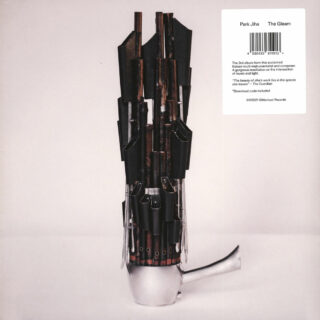
Park Jiha makes music that is difficult to describe and easy to understand. The hard facts: using instruments from traditional Korean court music such as piri (a flute), yanggeum (a kind of zither) and saenghwang (the imposing recorder pictured on the cover), as well as glockenspiel, Park single-handedly builds complex compositions that have the sonic quality of a synthesis of digital production processes and Fourth World aesthetics and the musical-rhythmic parameters of minimal music, jazz and post-rock. Always to the feel, always right to the heart. Unique, in every respect. Kristoffer Cornils
Kristoffer Cornils
Deep listening pioneer Pauline Oliveros would have turned 90 this year and of course this is celebrated with a series of reissues. In addition to a previously unreleased collaboration with the avant-tricksters of Reynols on Smalltown Supersound, her label home in her later years, Important, is doing an incredible job: in addition to a reissue of the 11CD box (!) Reverberations from her early creative phase, it has finally released vinyl reissues of The Wanderer and Accordion and Voice. The latter marked a turning point in Oliveros' work, who can be heard formulating a new musical poetology on two long pieces with the two means mentioned in the title. Improvisation, drone, sound in motion. Kristoffer Cornils
Kristoffer Cornils To the review
The title and the cover: Perel as a cyber-nursing Maddona with an alien baby. As hard-hitting as provocations once were, now they can only ever be humorous reflections on the fact that there are hardly any provocations any more. In this case, it can be understood as an overall concept of the music as well. And that is successful: with the spacey, techhouse-grounded synth-pop on »Jesus Was An Alien«, the DJ, producer and richly beguiling vocalist has beamed herself into everyone's hearts in this country.
Jana-Maria Mayer To the review
Her clear and determined new-wave voice blends in with the 4-to-the-floor beat, which culminates in cavorting bodies. »Goldener Strom« is the name of the second album by the 24-year-old musician Rosa Anschütz, who calls both Vienna and Berlin her current home. Anschütz received a lot of attention for her music particularly through the Berlin Atonal Festival and the version of her song »Rigid« remixed by the former Berghain resident, Kobosil. An album that succeeds in triggering a roller-coaster of emotions through the constant battle between melancholy, edginess, and booming bass.
Franziska Nistler To the review
All the more so since, as expected, everything can be smoothed out again quickly with the new Shinichi Atobe album. »Love Of Plastic« is one of the more brittle records in a perfectly styled discography, but there is still hardly anyone who captures house and techno in its natural elegance as readily as the Japanese. Remarkable how a reduced but emotive approach creates completely timeless music every time.
Florian Aigner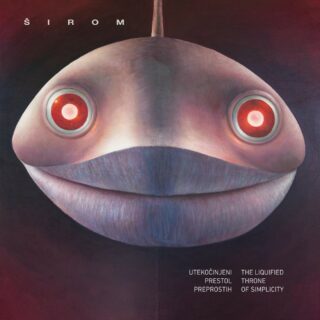
Mystified folk with Fourth World leanings from Slovenia, »The Liquified Throne Of Simplicity« by Širom is likely to show up on the books of several accounting companies this year. Here, among countless other instruments, the lyre is actually plucked. Fortunately, the medieval transfigured is contrasted with the feverish tribal drumming, so you never really know whether this is uncomfortably LARPy or all-out awesome. In any case, it's original and that's already something in itself.
Pippo Kuhzart To the review
This is the kind of reissue that pops up once in a blue moon. A lost album, hunted by many, for many years, that now has actually been reissued. Tia Blake recorded »Folksongs & Ballads« in just one day in the late sixties and it contains nothing but covers. She performs them with plucked guitar and a voice that is bright and present and at the same time shy and enraptured. To this day, bands try to find that vibe, very few succeed. »Folksongs & Ballads« is just as big as the biggest folk reissues of the last 20 years, the Jackson C. Frank debut, or »Painting A Lady«; Sibylle Baier, Anne Briggs.
Pippo Kuhzart
Here comes something compelling from Gothenburg again, and of course from the realm of Förlag For Fri music. »Mitt Stora Nu« is the second album by Treasury Of Puppies, a self-confident step away from the murmuring introversion of the debut, including a snot'n'roll hit. In between, Lo Fi Folk, ice cold synths and Scandinavian existentialism.
Florian Aigner To the review
No matter how the two originally found one another – UK-based producer TSVI and London-native Loraine James link their laptops on »053« for a five-track ride on AD93. The piano strums over grime beats, the pads dream themselves into hi-ho-happyland and, with »Trust« at the latest, heave around bulging bags of tears! In between, they stock up on Ritalin. Prophylactically, of course – after all, Jungle chops crash on angel's locks here. Not even the record title stays straight!
Christoph Benkeser
Compositional jack-of-all-trades Yasuaki Shimizu has a remarkable sense of how to strip drollness of all its negative connotations. His work with the band Mariah is proof of this, but even more so is this previously unreleased (!) stroke of luck from 1984. Shimizu's saxophone meanders and creaks, rousing repetitions suddenly fade out, a few squeaky synth splash, something frog-like, then on into the EBM-like crashing »Shiasate«. »Kiren« is as self-evident and incomprehensible as its own organism.
Jana-Maria Mayer To the review







